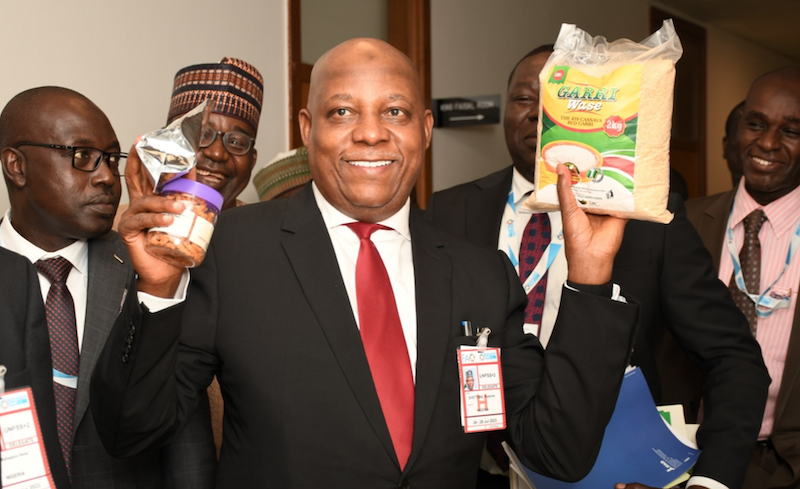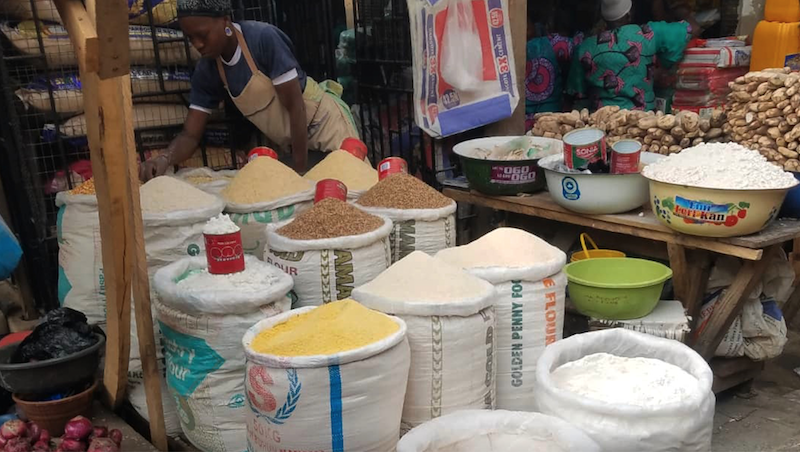Vice President Kashim Shettima has disclosed that Nigeria has mobilised more than half a billion dollars for innovative, profitable, equitable and sustainable food system transformation initiatives.
Mr Olusola Abiola, Director, Information, Office of the Vice President, in a statement said that Shettima made this known while chairing a high-level meeting on the first day of the UN Food Systems Summit in Rome, Italy.
The meeting was declared open by the UN Secretary General, Antonio Guterres.
Shettima explained that the funds were mobilised through domestic resources, multilateral development banks, international financial institutions and climate funds by leading agro-businesses.
He said that the funds would be used for financing food system transformation, development of Nigeria’s agro value chain and the setting up of Special Agro-Industrial Processing Zones.
“In this event, the Government of Nigeria will be showcasing its Value Chain Development Programme (VCDP) as a unique example of a successful partnership between producers, the public sector and private operators.
“The VCDP, which is co-funded by Nigeria and IFAD, has empowered vulnerable farmers and youth to engage in commercial partnerships with some of the biggest food processing and marketing firms in the world such as OLAM,“ Shettima said.
OLAM is operating in more than 60 countries with an annual revenue of about 39.8 billion dollars.
While speaking on the government’s vision about ending hunger, the vice president noted that building on the success of the VCDP, the Federal Government was determined to empower Nigeria’s rural small holders and operators, youth and women living below the poverty line to enable them to take advantage of the new Special Processing Zones.
Also on the Special Agro-Industrial Processing Zones (SAPZ), Shettima said it brought together local governments, IFAD, AfDB, IsDB, GCF, OLAM and other private actors alongside the government of Nigeria for transformative financing of food systems that leaves no-one behind.
Similarly, while featuring in the panel discussion with the Prime Minister of Somalia, Hassan Sheikh Mohamud; Deputy President of Kenya, Rigathi Gachagua; and Prime Minister of Niger Republic, Ouhoudou Mahamadou, Shettima said President Bola Tinubu was determined to transform the concept and meaning of modern governance” by demonstrating commitment towards the food system in the country.
“President Tinubu hit the ground running from day one of his administration, which is barely two months in office and has declared a state of emergency in food security and took it as a livelihood item within the National Security Council.”
On removing impediments to economic recovery, he said “we had two albatrosses around our necks, subsidy on petrol and multiple exchange rates system.
“We withdrew the subsidy on petrol from day one, just like President Ruto did in Kenya.
“To mitigate the effects of the subsidy removal, the government embarked on the immediate release of grains and fertilizers.
“A commodity marketing board has been put in place to continuously review and monitor the prices of food items. Along this way, the president has already approved the infusion of huge quantum of funds towards repositioning of our security architecture.
“We have similar problems with Somalia and Kenya, especially in the Northeast and Northwest regions of our country and so we are repositioning our security architecture to provide support for farms and farmers,“ the vice president said.
Earlier, while declaring the Summit open, the UN Secretary General, Guteress commended the participating countries for their commitment to addressing the problems of hunger and malnutrition.
“This is the gathering about food system. It is essentially to fulfill those basic of human rights, the right to food. It is outrageous that people continue to suffer in the world of plenty,” he said.
The Vice President also had bilateral meeting with the Italian Prime Minister, Giorgia Meloni. Both leaders discussed issues about the development of the two countries.
Shettima was accompanied to the meeting by Nigeria’s Ambassador to Italy, Mfawa Abam and the Deputy Chief of Staff to the President, Sen. Ibrahim Hadejia, and other senior government officials.
In attendance were the President of IFAD, Dr Alvaro Lario, Muhammad Suleiman Al Jasser, President of Islamic Development Bank (IsDB) and the Vice President of AfDB, Mrs Hassatau N’Sele.
Others were the Vice President of OLAM International, Mr Reji George and the Vice President, Commodity Alliance Forum (Representative of farmers) Mrs Ejim Lovelyn.


![[Devotional] IN HIS PRESENCE: The food of fancy](https://thenewsguru.ng/wp-content/uploads/2023/02/Screenshot-2023-02-21-at-5.48.27-AM.png)




